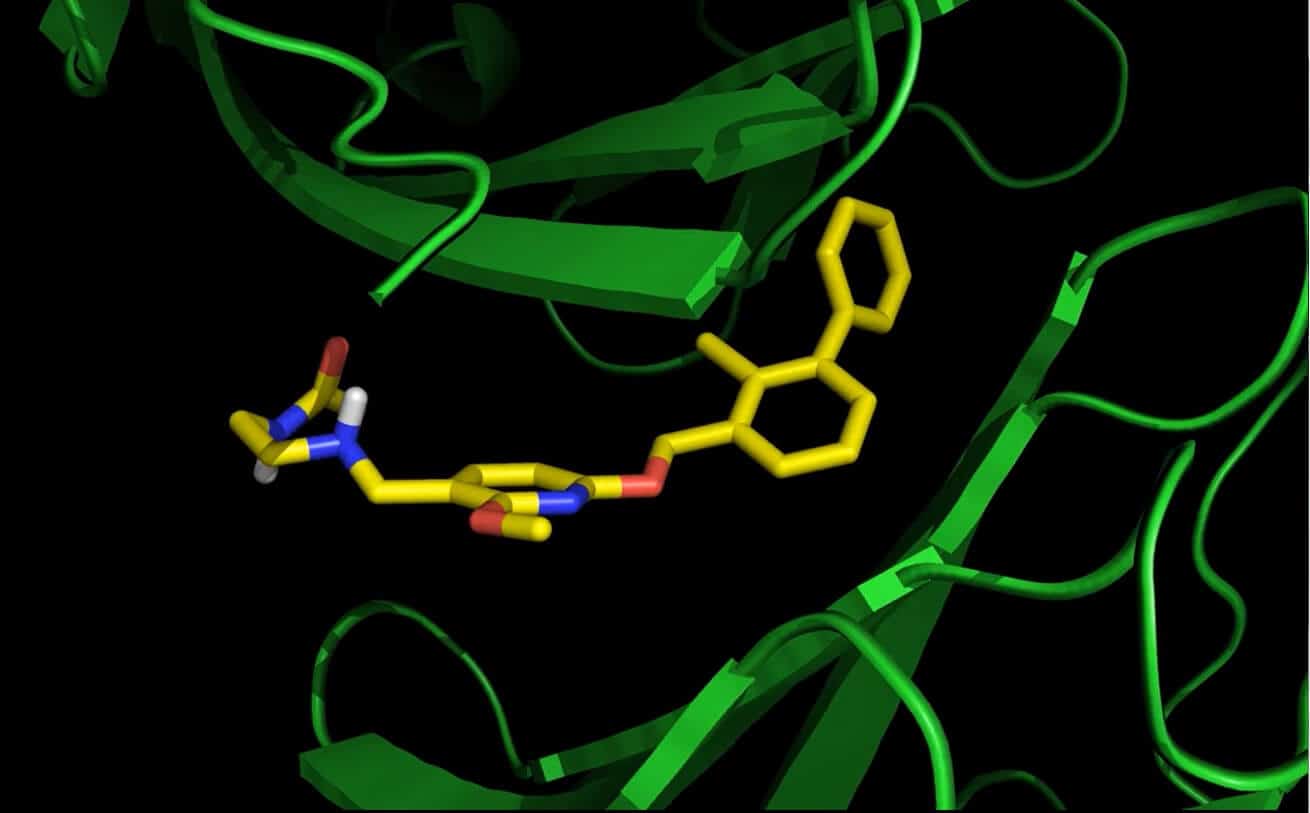Prof. Ronit Sachi-Painero: "I believe that in the future the small molecule will be available and will make immunological treatment accessible and effective for cancer patients."

Researchers from Tel Aviv University and the University of Lisbon have identified and synthesized a small molecule that can be a more accessible and effective replacement for an antibody that is successfully used to treat a number of cancers. The researchers explain that the antibodies to the PD-1/PD-L1 proteins are already approved for clinical use, including in Israel, and are considered the great promise of the fight against cancer. The state-of-the-art immunological treatment can significantly improve the patient's condition, without the severe side effects associated with treatments such as chemotherapy. But the antibodies are expensive to produce, and hence are not available to all patients. Moreover, the treatment does not affect all parts of solid cancerous tumors, because it is too large to penetrate less accessible and less exposed areas of the tumor.
Now, the researchers from Tel Aviv University and the University of Lisbon used bioinformatics and data analysis to find a smaller and smarter alternative to these antibodies. Behind the groundbreaking development is an international team of researchers led by Prof. Ronit Sachi-Painero, head of the Cancer Biology Research Center and head of the Laboratory for Cancer Research and Nanomedicine at the Sackler Faculty of Medicine of Tel Aviv University, in collaboration with Prof. Helena Florindo and Prof. Rita Guadesh from the University of Lisbon. The results of the study were published in the Journal for ImmunoTherapy of Cancer.
Cancer treatment through the immune system
"In 2018, the Nobel Prize for Medicine was awarded to James Ellison and Tsuko Honjo for their contribution to the research of immunotherapy, the treatment of cancer using the immune system," says Prof. Sachi-Painero. "Hongjo discovered that T cells of the immune system secrete a protein called PD-1 that disables their activity by binding to the PD-L1 protein expressed on the cancer cells. By actually linking PD-1 to PD-L1, the cancer cells paralyze the T cells, thus preventing them from killing the cancer cells. Hongjo has developed antibodies that neutralize PD-1 or PD-L1 and free the T cells to effectively fight cancer."
Prof. Sacchi-Painero adds: "Postdoctoral student Dr. Rita Accorcio started with thousands of molecular structures, and with the help of databases and computational models called CADD, or computer-aided drug design, we narrowed down the list of candidates until we reached the best structure."
"In the second step, we verified in experiments on model animals engineered with human T cells that the small molecule does indeed inhibit the development of the tumor no less well than the antibodies after PD-L1 inhibition. In addition, doctoral student Sabina Pozzi tested the effectiveness of the new molecule on 300D models of melanoma that she created in the laboratory. It should be understood that an antibody is a biological molecule, not a synthetic one, and therefore requires a complex infrastructure and a lot of money to produce it. Such an antibody today costs a patient around 1 thousand dollars per year of treatments. We have developed a small molecule that knows how to inhibit the binding of PD-1/PD-LXNUMX and remind the immune system that it needs to attack the cancer. We have already synthesized the small molecule with simple equipment, in a short time and at a fraction of the price. Another advantage of the small molecule is that it will likely be possible to take it at home, orally, and not by infusion in a hospital."
small and powerful
In addition to accessibility considerations, the experiments conducted by the researchers show that the small molecule improved the activation of immune system cells within solid tumors. "The surface area of a solid cancerous tumor is heterogeneous," explains Prof. Sacchi-Painero. "If a certain area of the tumor has fewer blood vessels, the antibody will not be able to enter that area of the tumor. Since a small molecule diffuses, it is not completely dependent on the tumor's blood vessels or their permeability. I believe that in the future the small molecule will be available and will make immunological treatment accessible and effective for cancer patients."
More of the topic in Hayadan:
